Zucchini, also known as courgette, is a common plant in many homes and gardens. It is grown for its fruit and flowers, which are both edible and part of the ingredients of many dishes. Zucchini is known scientifically as Cucurbita pepo (field pumpkin) and belongs to the Cucurbitaceae (gourd) family. This summer squash looks just like a cucumber, but it is worlds apart from the cucumber as they are in no way related except for their looks.
Growing Zucchinis through Companion Planting
Companion planting is an optimal way of adequately and organically utilizing space and improving the Zucchini plant’s overall fruitfulness and healthy growth. While it equally helps us as farmers and gardeners to make the best use of available space in the garden, growing compatible plants near each other is of great benefit to the plants as they both share in each other’s nutrients and pest-repelling attributes.
Companion planting works by planting two or more plants that support the growth of each other, including providing protection and support against pests and diseases, adding nutrients and flavor to the companion crop or plant, improving the overall health and fertility of the soil, and more. You can grow Zucchini just in your backyard, or you might be a large-scale farmer of this summer squash.
Best Zucchini Companion Plants
The most common companion plants for Zucchini include beans, squash, and corn because they thrive in the same environment and have similar growing conditions. This combination is of great benefit to the three plants and is popularly known as the three sisters. Here is a list of the best Zucchini companion plants that provide pest protection for your crop and helps you have a bountiful harvest.
Beans

Beans remain one of the best companions for Zucchini. As part of its many benefits, beans pull nitrogen from the air and release the same to the soil, which is an excellent boosting mechanism for the growth of Zucchinis. As a nitrogen-producing plant, beans build soil fertility for themselves and nearby plants; hence, companion planting of beans is of great benefit to all other crops or plants around it, especially heavy-feeding plants like Zucchini which require many nutrients for their growth.
Some farmers have proved that bush beans serve as repellants to garden beetles which, if not properly prevented, can distort the development of the Zucchinis. Plant a few of these crops in your garden near the Zucchini and enjoy the comfort of having a bountiful harvest.
Borage

Companion planting of borage and Zucchini in your garden also comes with benefits to both plants. For instance, a Zucchini plant with many yellowish flowers without fruits is in dire need of pollinators. This is the area where the borage serves its companion, Zucchini.
The Borage is an edible herb with scented leaves that attracts honeybees and other pollinators that naturally serve the purpose of pollinating zucchini flowers. These pollinators are easily attracted by the shape and bright color of the borage blooms. Besides, borage also acts as a pest repellant for the Zucchinis, keeping dangerous insects and pests away from the plant.
Garlic
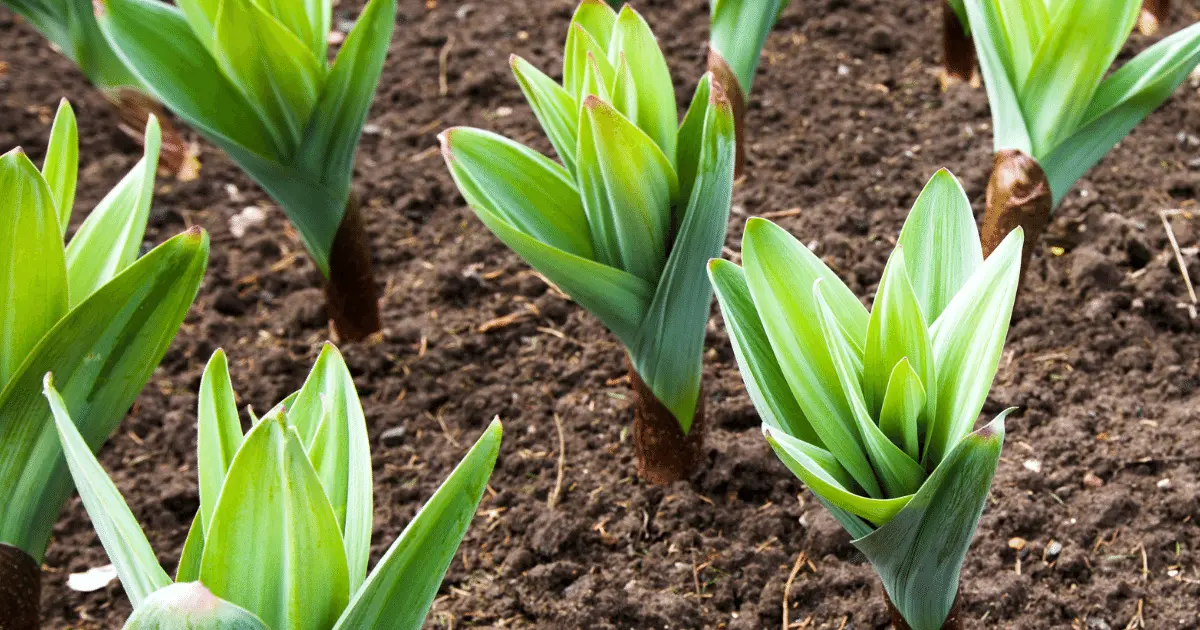
Aphids are extremely voracious pests that usually affect the growth of Zucchini, and any gardener that can keep them away from his/her plants or crops would serve a great purpose in the safekeeping of the Zucchini. As a pest-repelling plant, the Garlic serves this purpose by keeping aphids and other dangerous pests off the zucchini terrain. Garlic is also a perfect companion plant as it is rich in sulfur compounds that help the growth of the zucchini.
Spinach
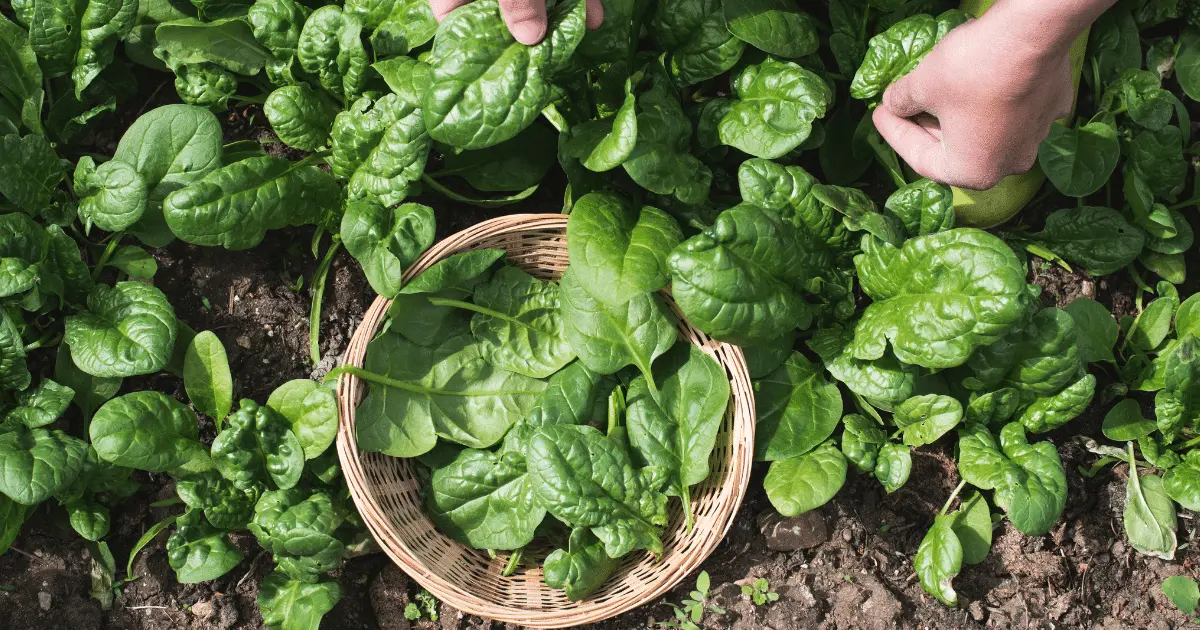
Spinach is also a great companion for Zucchini as it not only provides benefits to the Zucchini but also benefits from the Zucchini. Zucchini provides ample shade for the spinach to thrive in heat, while the spinach also releases nutrients into the soil for the Zucchini to grow.
Radish

Radishes repel beetles (zucchini pests) from coming into or negatively affecting the zucchini plantations. The radish plant also serves as a repellant to the squash vine borers. These two pests (beetles and squash vine borers) can wreak serious havoc on a zucchini plantation if not kept away.
Peas
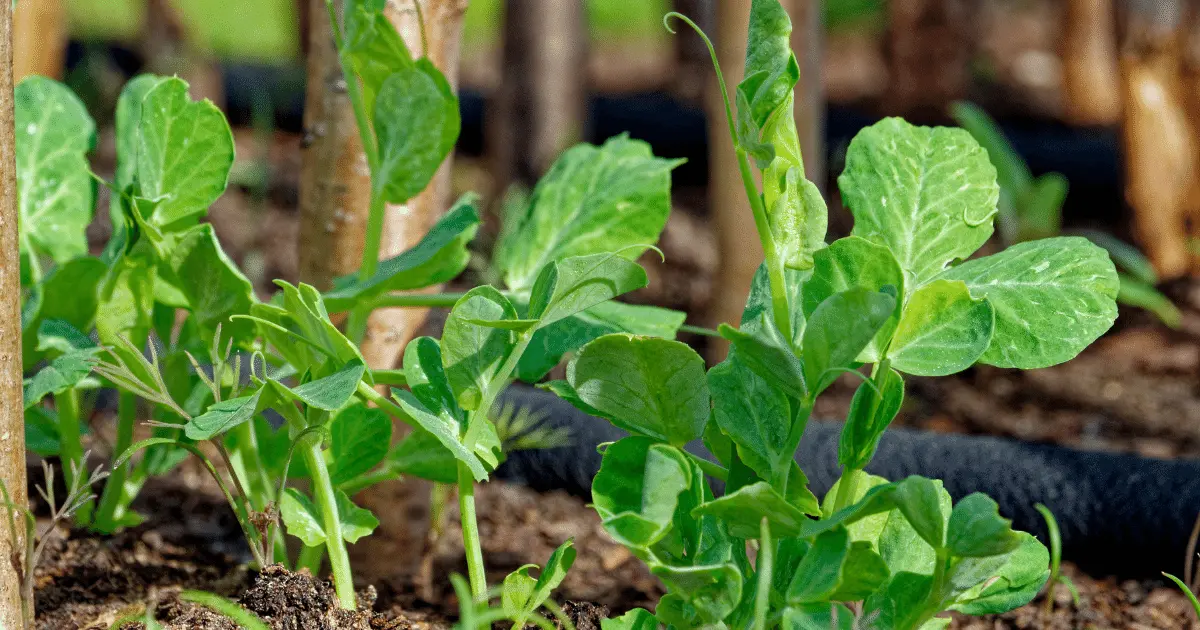
Like beans, peas also exhume nitrogen, which is an excellent booster for the growth and flourishment of Zucchinis. As a nitrogen fixer, peas boost soil fertility and improve the quality of the soil for the zucchini to thrive. Therefore, planting Zucchinis around peas essentially connects them to a source of free energy.
Mint

Mint is a plant family that exhumes diverse aroma, which serves as a repellant to grazing animals like deers and pests like the aphids that usually plague the growth of Zucchinis.
Nasturtiums

This is a very ornamental plant, and its colorful nature attracts many insects that serve as pollinators. The challenge is that some of these insects are harmful to Zucchinis; the smart thing gardeners do, however, is to use this colorful plant to the advantage of the zucchinis by sacrificing it. You can do this by planting Nasturtiums as zucchini companions, thereby attracting the likely pests of the Zucchinis (most especially Aphids) to the Nasturtiums instead of the Zucchinis. Nasturtium serves as a sacrificial or trap plant in the zucchini garden because aphids and whiteflies that would normally affect the zucchini love the nasturtium plant and might leave your zucchini plant to enjoy its growth.
Corn

Corn is one of the three sisters’ families of crops (including beans and squash/zucchini) that form a mutually beneficial and companion planting relationship in any garden. This plant will keep dangerous pests that bore the vines out of the reach of Zucchini plantations. As plant partners and harmonious neighbors, they have the same moisture and soil quality requirement. Hence, both the zucchini and corn can thrive favorably and flourish with lots of sunshine and regular garden watering.
Parsley
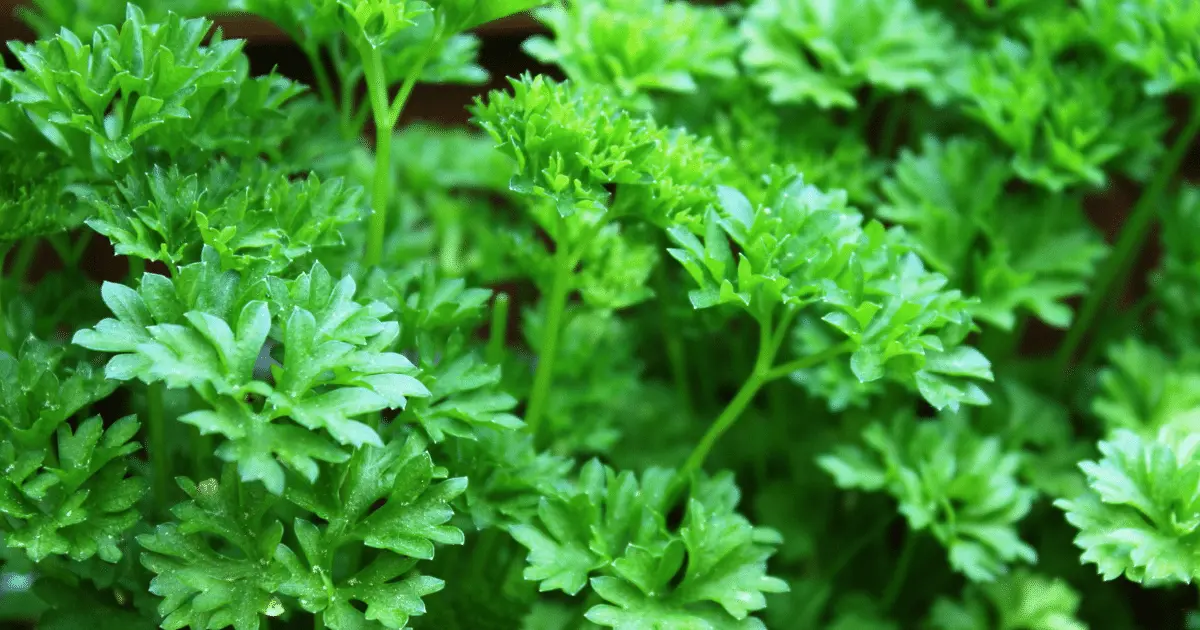
The parsley herb is a flavor-rich plant that provides natural pest control benefits to your garden as it attracts beneficial insects (pollinators). Parsley as a companion plant to the zucchini is best achieved when you allow the plant to flower. These flowers attract pollinators and also keep pests off Zucchini plantations.
Dill
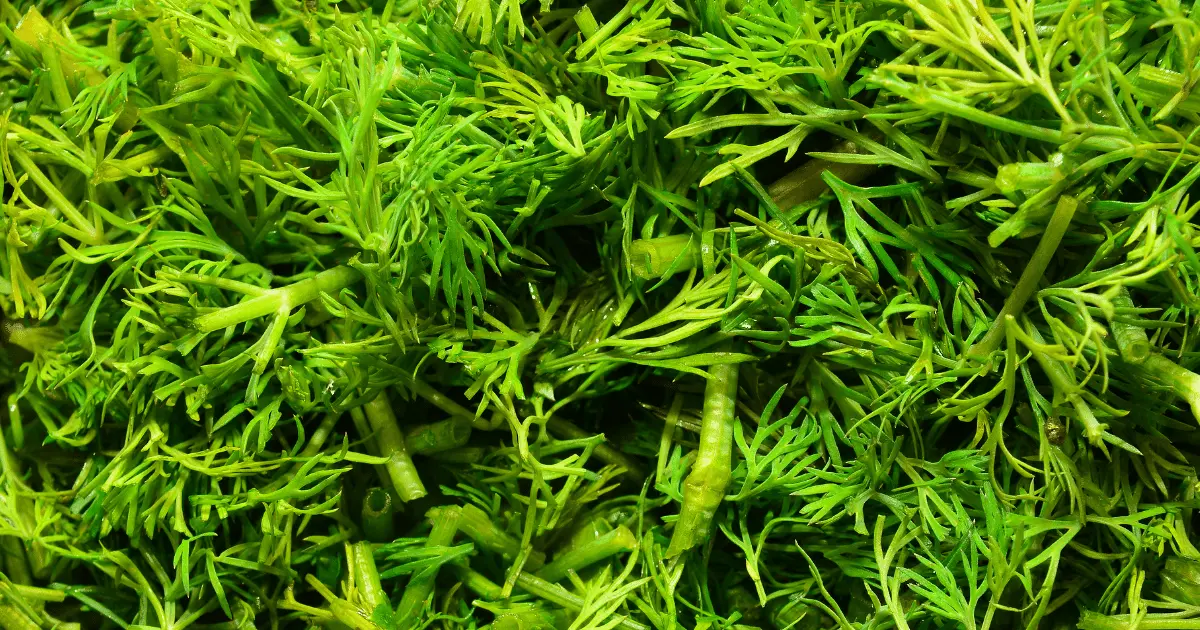
The dill herb is an aromatic herb that keeps pests like flea beetles, spider mites, aphids, and cucumber beetles out of the Zucchini plantation. Likewise, the attractiveness and fragrance of this herbal plant also lure beneficial pollinators to the zucchini garden, including butterflies, hoverflies, ladybugs, wasps, and more. These pollinators help the zucchini flowers and plants to thrive and enjoy a bountiful harvest.
Marigolds
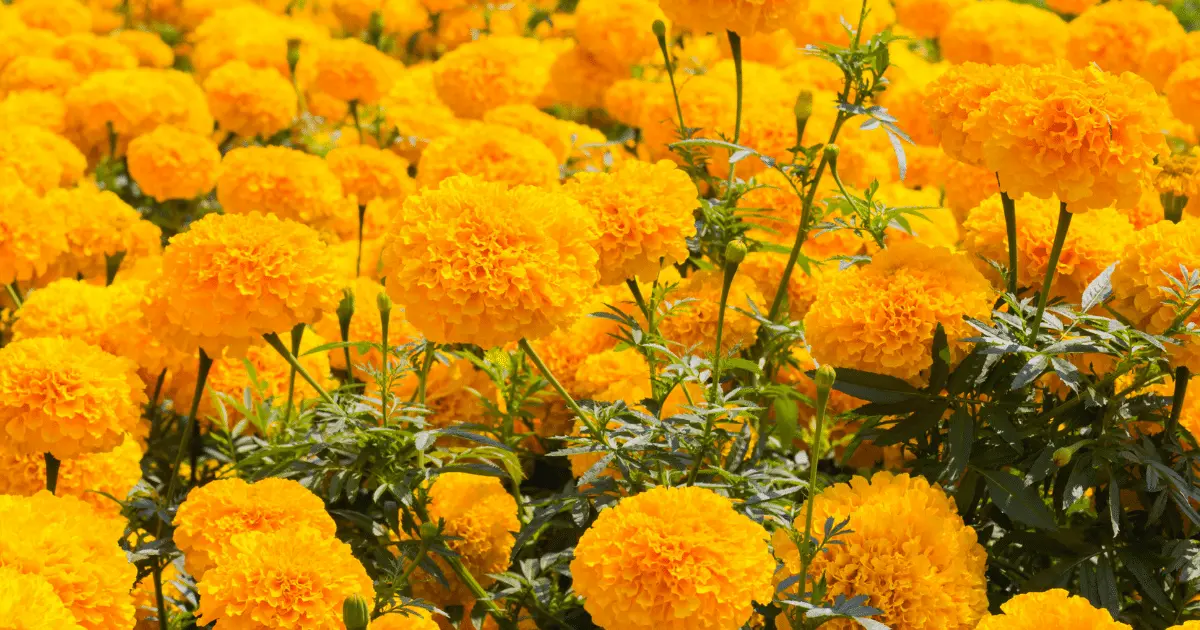
Marigold is a good companion plant for the zucchini in your garden. Marigolds produce chemicals and aromas that repel pests like nematodes, aphids, whiteflies, and other pests that could damage your zucchini crops
Oregano
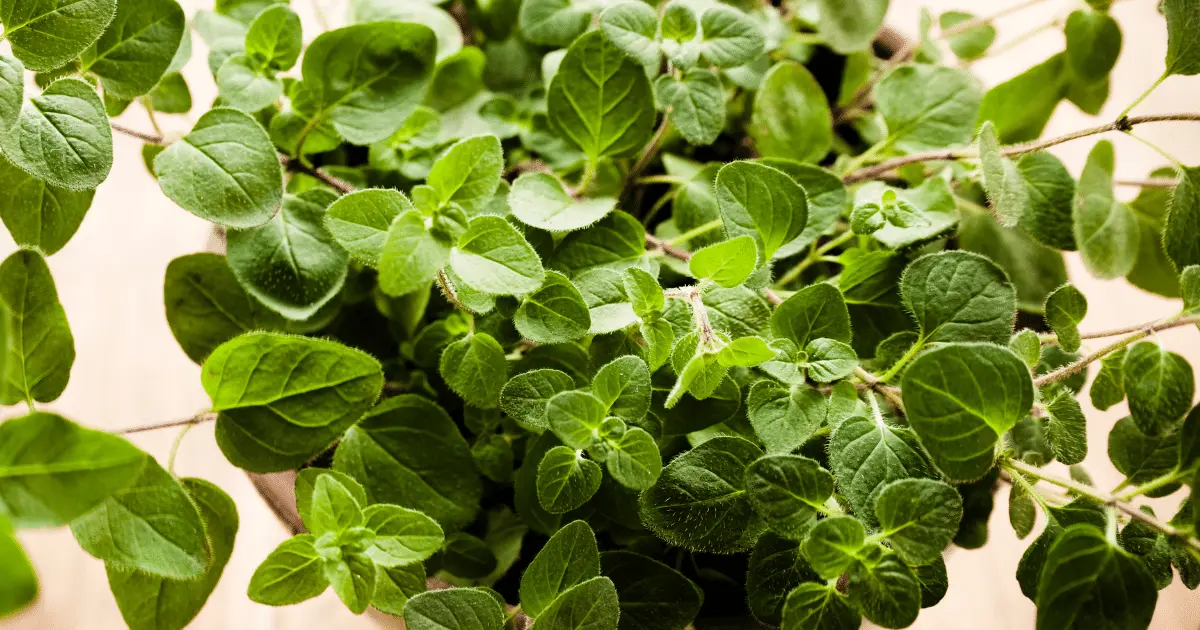
Oregano is a small-flowered fragrant herb plant that attracts pollinators to the zucchini. It also wards off pests and insects like whiteflies, aphids, and more, from affecting your plants. By companion planting your zucchini crop with oregano herb, you can rest assured of a beneficial relationship between both plants, as the oregano herb does not compete for water or nutrients with Zucchini.
Phacelia
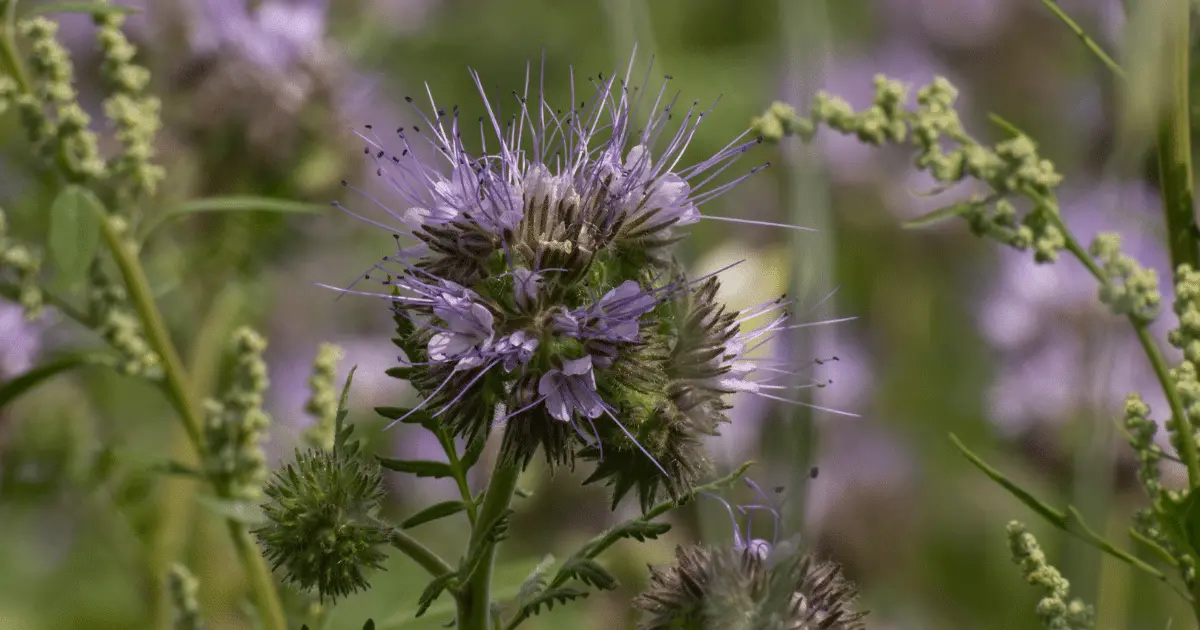
You can plant phacelia in your zucchini garden for pollination purposes. The phacelia produces purple flowers that attract good pollinators for the zucchini flowers. It also attracts bees and hoverflies and serves as a repellant to aphids and other pests.
Rosemary
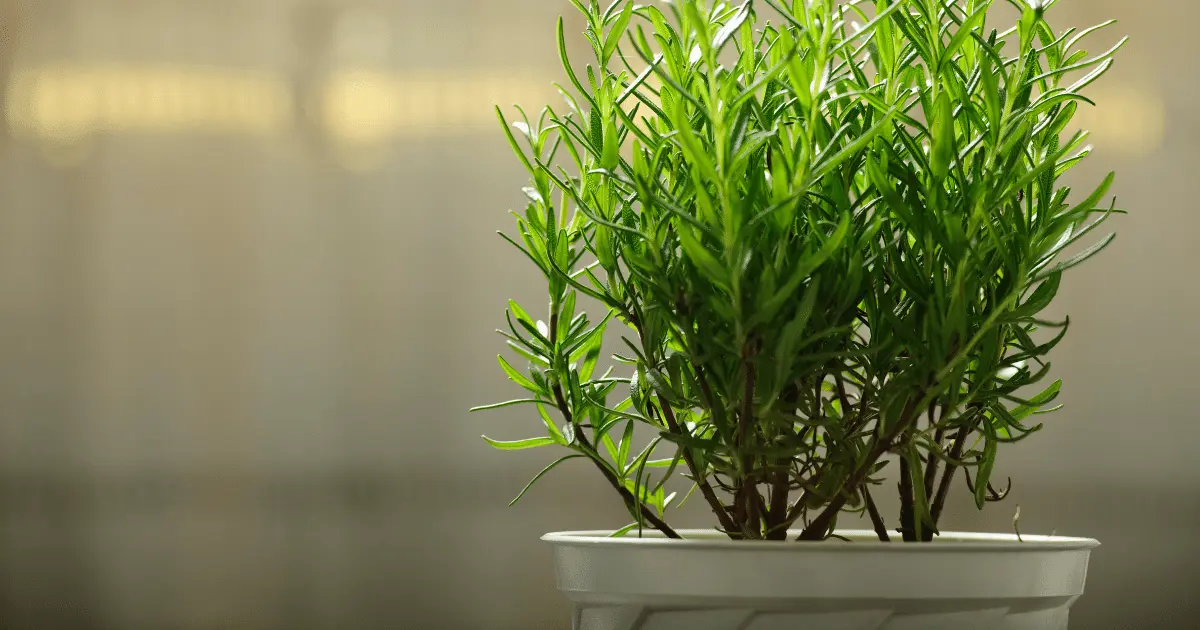
Rosemary is an excellent companion plant for zucchini. This aromatic herb pairs well with zucchini in the garden by keeping away pests that can hinder the growth of the zucchini, including squash bugs, cucumber beetles, earworms, and more.
Blue Hubbard Squash
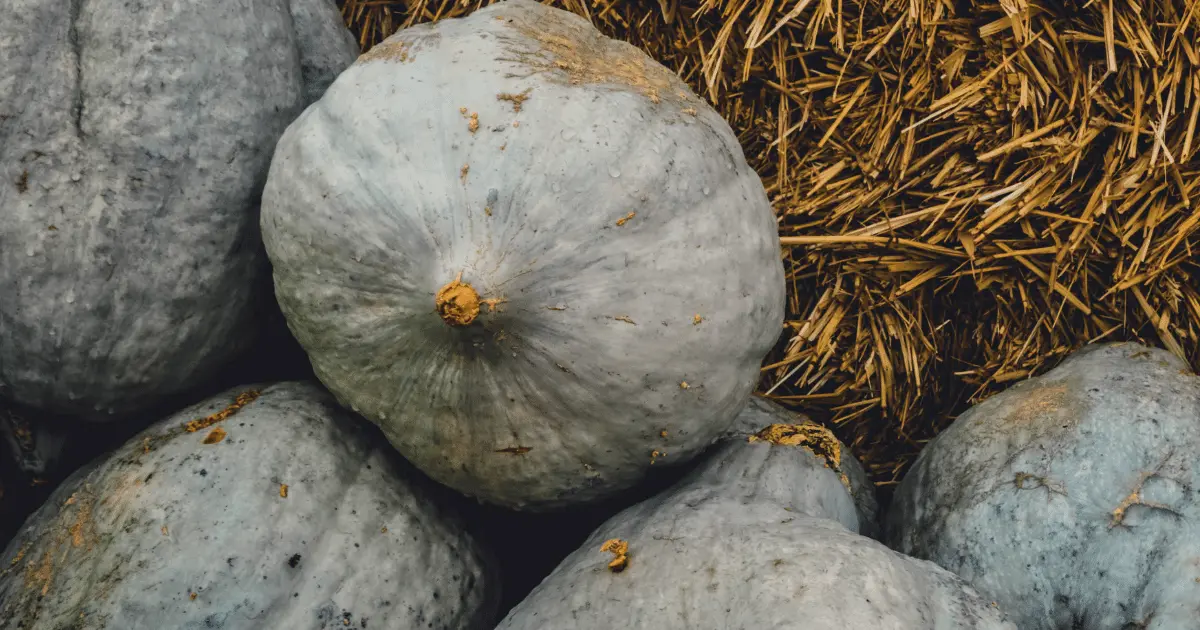
Blue Hubbard Squash helps zucchinis in a similar way to Marigolds. It attracts pests that attack zucchini plantations. Therefore, it serves as a trap crop that keeps them off the Zucchini by drawing the attention of the pests to itself. Squash bugs, cucumber beetles, and vine borers are some of the pests this zucchini companion deals with.
Catnip
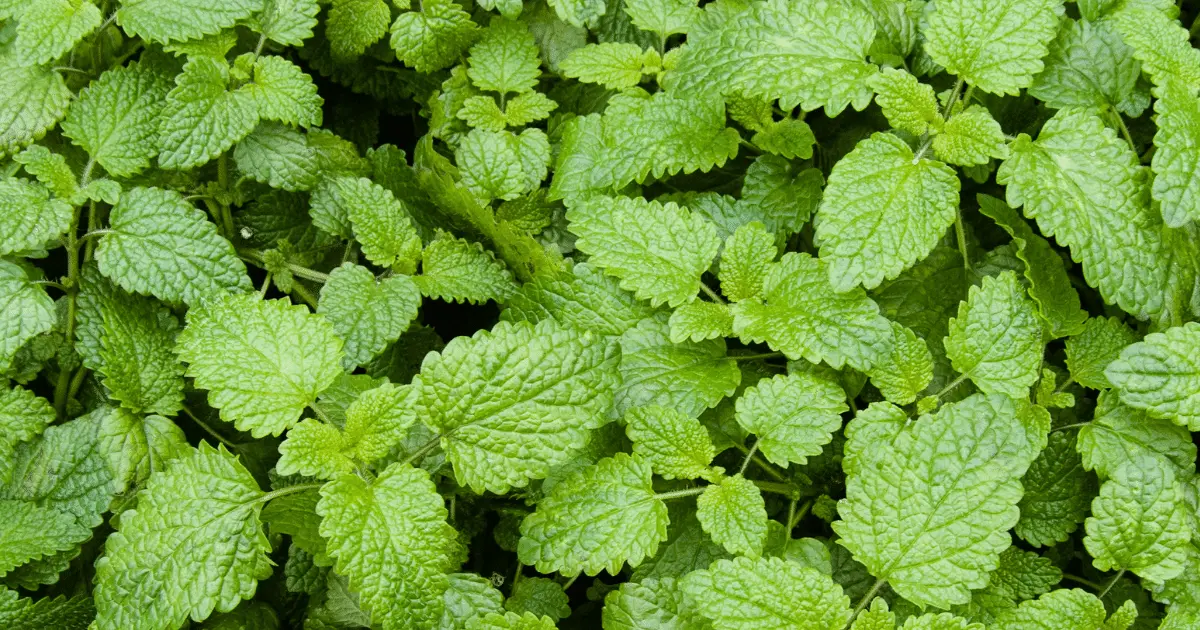
Catnip is an edible mint-flavored herb that will repel aphids, squash bugs, ants, and even rodents from the Zucchini plants. The catnip’s strong scent and aroma help repel beetles, squash bugs, and other pests. Strategically planting catnip on the borders of Zucchinis will prevent even cats from penetrating the farm. Allowing the catnip to flower in the garden can also attract good pollinators to your zucchini plants.
Chives
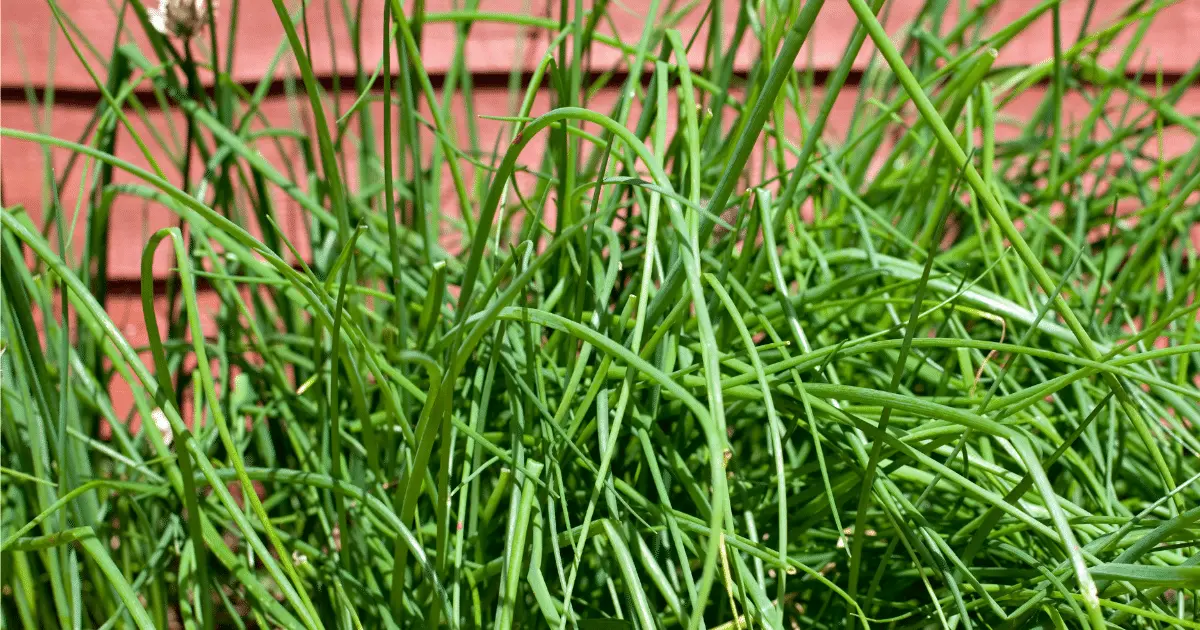
Chives are good companion plants for the zucchini. Chives are flavored and fragrant herbs that serve as both pollinators and repellants. The flowers of the chive plant attract good pollinators to the garden to aid the growth of the zucchini. Likewise, the strong scent of the chive plant repels zucchini foes, including aphids, cucumber beetles, and more.
Lettuce
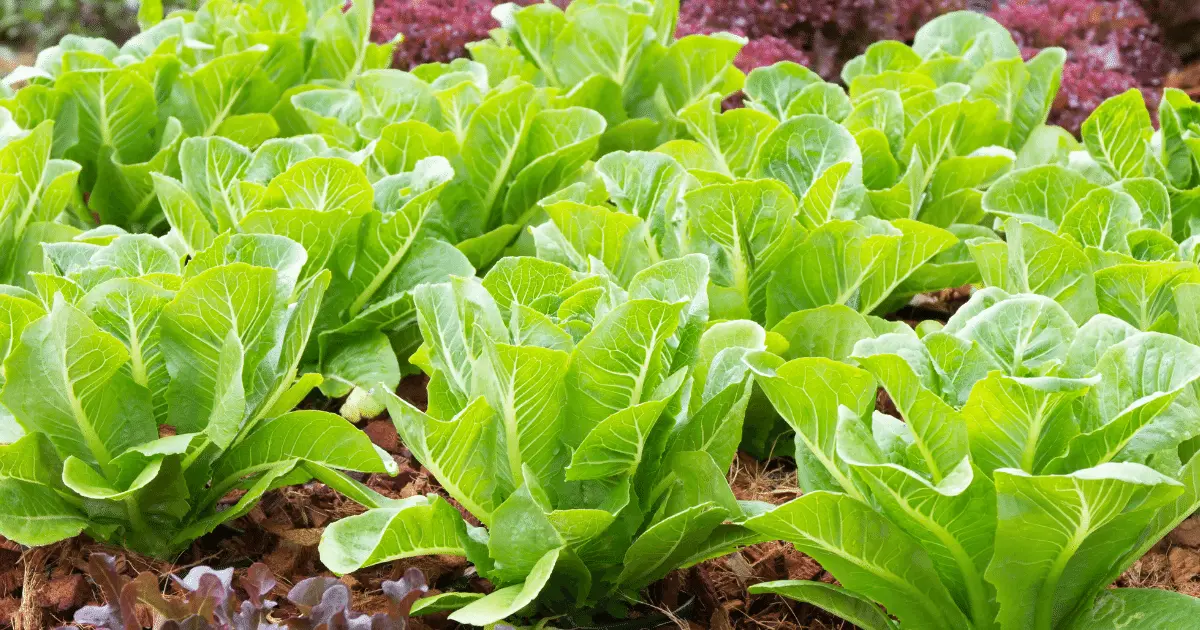
Lettuce isis a good companion for the zucchini as it doesn’t compete for space and nutrients with the plant. As a result of the size and space requirements of lettuce, it is a great companion for Zucchinis, as it helps you to properly utilize the space and nutrients to channel both to the growth of the zucchini.
Lavender
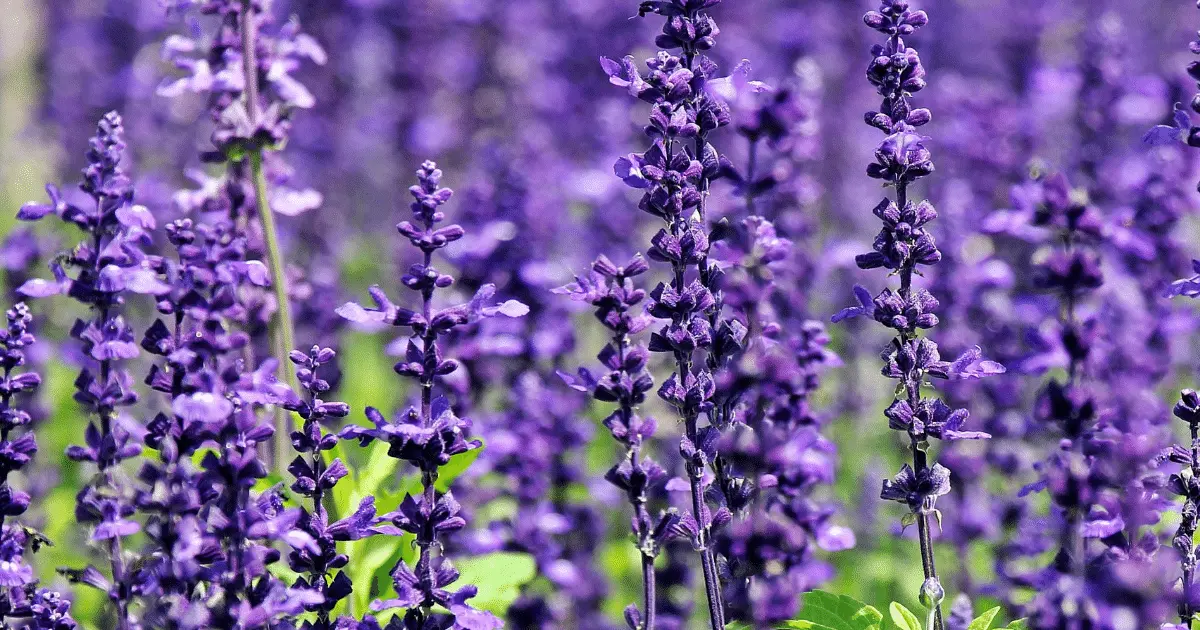
Lavender is an aromatic herbal plant that benefits both plants and humans. Lavender is a great zucchini companion as it attracts pollinators such as bees, which can help pollinate the zucchini.
Precautionary Measures for Zucchini Companion Planting
Some plants don’t work well in companionship with zucchinis, and keeping those away from zucchini plantations as much as possible is essential. It is also important to understand the companion plant’s growing conditions to ensure that it is adequately catered for.
Growing Zucchinis
From planting to growing and, finally, to harvesting, Zucchini cultivation can be strategic. The simple advantage of planting Zucchinis is that you can grow it in your home garden and adequately tend to it.
Zucchinis need a warm environment to thrive, so planting requires the soil to be about 65 to 70 degrees Fahrenheit to grow well. The site should have good exposure to sunlight, and the ground should have a rich texture.
You can also use containers for breeding Zucchinis; the only thing is to ensure an apt number inside the container. After planting, ensuring the plant is appropriately moistened is pertinent to the proper growth and survival. Zucchinis are harvested when their fruits are between 3 and 8 inches long.
